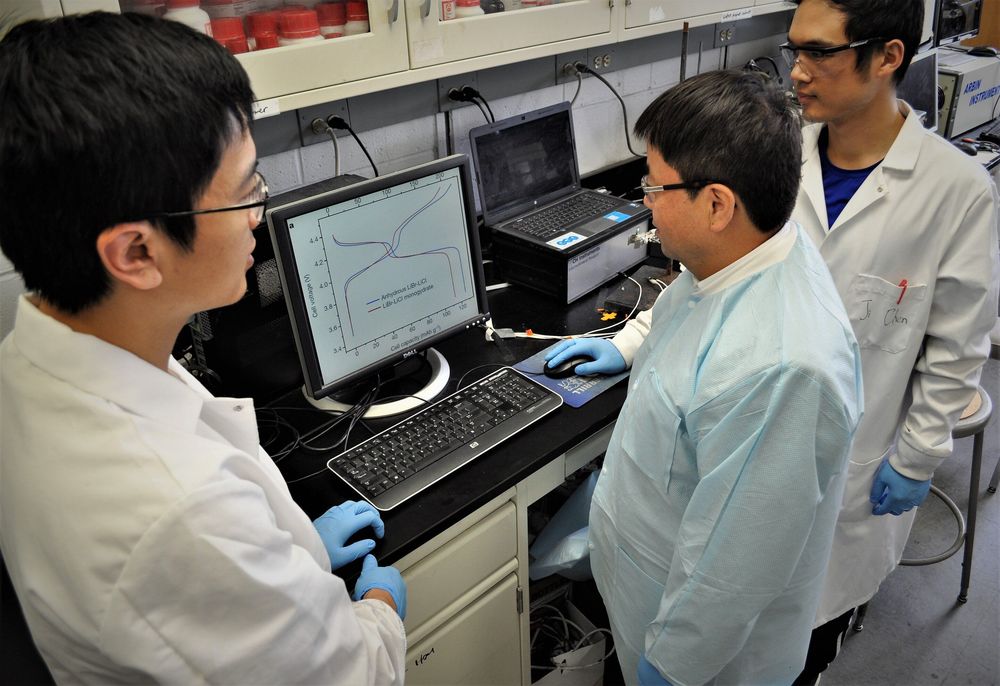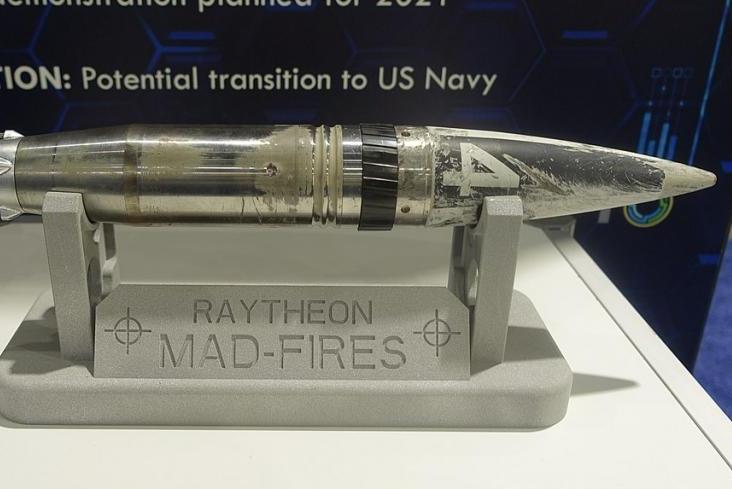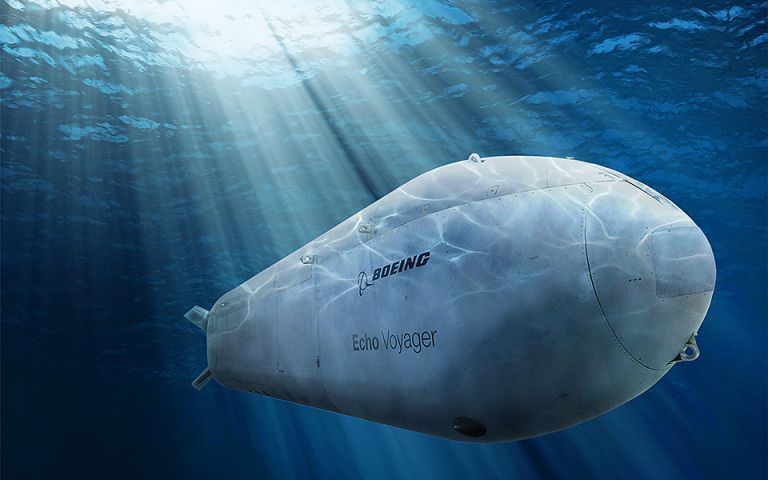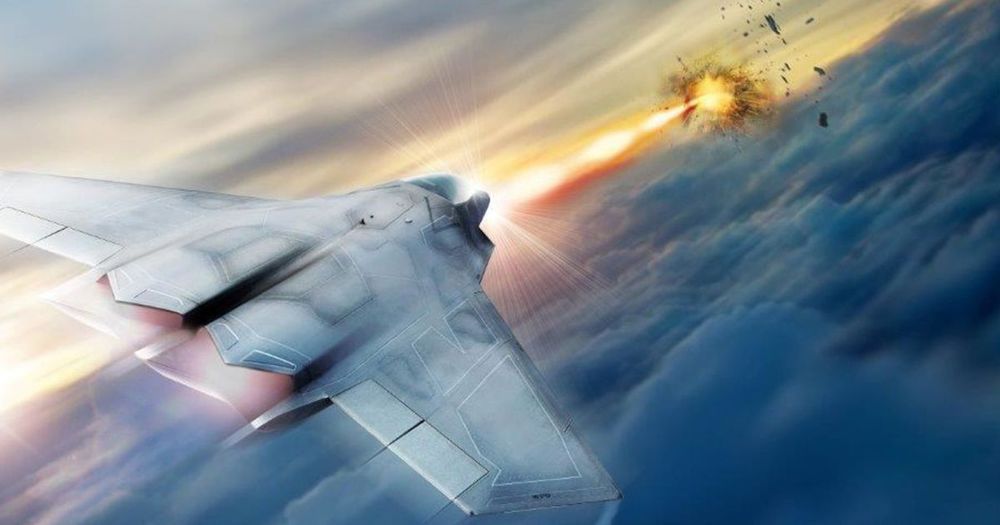Archive for the ‘military’ category: Page 211
May 10, 2019
What Insurgency Will Look Like in 2030
Posted by Quinn Sena in categories: 3D printing, military, robotics/AI, terrorism
With the rise of enhanced being the world will change at a fast pace similar games such as black ops 3 are a proper representation of possible outcomes in warfare. Like for instance sentient warfighting robot beings or cybernetically enhanced humans. The extremes of these also are seen in wetware which can essentially not have many limits so increased strength intelligence really anything you can imagine. Really sci-fi games such as halo are not far off at the possibilities of warfare. Really we are only limited by our imagination.
The author of “Ghost Fleet” has some guesses — and some questions that U.S. defenders will have to answer.
Robots, artificial intelligence, cyberwar, 3D printing, bio-enhancements, and a new geopolitical competition; the 21st century is being shaped by a range of momentous, and scary, new trends and technologies. We should also expect them to shape the worlds of insurgency and terrorism.
May 10, 2019
From the A bomb to the AI bomb, nuclear weapons’ problematic evolution
Posted by Carse Peel in categories: information science, military, robotics/AI
From autonomous nuclear submarines to algorithms detecting a threat, to robot-guided high-speed missiles, artificial intelligence could revolutionise nuclear weapons – risking some profound ethical conundrums – a recent report reveals.
May 9, 2019
Reversible chemistry clears path for safer batteries
Posted by Quinn Sena in categories: chemistry, energy, military
Researchers at the University of Maryland (UMD) and US Army Research Lab (ARL) have taken a critical step on the path to high energy batteries by improving their water-in-salt battery with a new type of chemical transformation of the cathode that creates a reversible solid salt layer, a phenomenon yet unknown in the field of water-based batteries.
Building on their previous discoveries of the water-in-salt electrolytes reported in Science in 2015, the researchers added a new cathode. This new cathode material, lacking transition metal, operates at an average potential of 4.2 volts with excellent cycling stability, and delivers an unprecedented energy density comparable, or perhaps higher than, non-aqueous Li-ion batteries. The authors report their work on May 9 in the journal Nature.
“The University of Maryland and ARL research has produced the most creative new battery chemistry I have seen in at least 10 years,” said Prof. Jeffrey Dahn of Dalhousie University in Canada, an expert in the field not affiliated with the research. “However, it remains to be seen if a practical device with long lifetime can be created.”
Continue reading “Reversible chemistry clears path for safer batteries” »
May 8, 2019
Raytheon tests motor for DARPA’s MAD-FIRES self-defense interceptor
Posted by Genevieve Klien in categories: military, robotics/AI
May 7 (UPI) — Raytheon Company successfully tested a hot fire rocket motor for DARPA’s Multi-Azimuth Defense Fast Intercept Round Engagement System.
The test for the U.S. Defense Advanced Research Projects Agency was conducted on an undisclosed date at Yuma Proving Ground in Arizona, Raytheon announced Monday.
The MAD-FIRES interceptor is designed to provide self-defense capability that defeats multiple waves of anti-ship missiles, unmanned aerial vehicles, small planes, fast in-shore attack craft and other platforms that “pose a perennial, evolving and potentially lethal threat to ships and other maritime vessels,” according to the agency.
Continue reading “Raytheon tests motor for DARPA’s MAD-FIRES self-defense interceptor” »
May 8, 2019
Army Demonstrates a Weapon That Shoots Laser-Guided Lightning Bolts
Posted by Quinn Sena in categories: climatology, military, particle physics
Over at Picatinny Arsenal, the research and development facility and proving ground for the U.S. Army’s weaponry, engineers are developing a device that shoots lighting bolts along a laser beam to annihilate its target. That’s right: lighting bolts shot down laser beams. This story could easily end right here and still be the coolest thing we’ve written today, but for the scientifically curious we’ll continue.
The Laser-Induced Plasma Channel (LIPC) can be used to destroy anything that conducts electricity better than the air or ground surrounding it (unexploded ordnance seems a good candidate here). It works off of some pretty basic principles of physics, using a laser to carve an electromagnetic path through the air that accommodates a high-voltage beam. Create that path, crank up the voltage, and your target is toast.
It works like this: a high intensity, super-short duration (maybe two-trillionths of a second) laser pulse will actually use air like lens—surrounding air focuses the beam, keeping the laser pulse nice and tight rather than scattering it. If the pulse is strong enough, it actually creates an electromagnetic field around itself that’s so powerful it strips electrons from air molecules, essentially creating a channel of plasma through the air. Since air is composed of neutral particles (that act as insulators) and the plasma channel is a good conductor (relative to the un-ionized air around it) the path of the laser beam becomes a kind of filament.
Continue reading “Army Demonstrates a Weapon That Shoots Laser-Guided Lightning Bolts” »
May 8, 2019
New Russian Submarine Can Launch Nuke-Carrying Drones
Posted by Quinn Sena in categories: drones, military
M.A.D.
The Poseidon drone can travel a full kilometer beneath water level, making it difficult to detect and stop once its deployed. And that level of stealth — especially when it’s tipped with a deadly nuclear bomb — has other nations concerned.
“It is worrying that countries are developing new nuclear capabilities,” Ine Eriksen Søreide, Foreign Minister of Norway, told The Barents Observer.
Continue reading “New Russian Submarine Can Launch Nuke-Carrying Drones” »
May 8, 2019
Catastrophic meteors: How space scientists hope to protect ‘the only planet we know’
Posted by Quinn Sena in categories: military, space travel
NASA is warning that meteors pose a major threat to Earth, so agencies are already testing out ways to defend against them by using lasers or by ramming spacecraft into them.
During a conference last week, NASA administrator Jim Bridenstine explained that not taking meteors seriously could have catastrophic consequences. In 2013, a 20-metre meteor exploded over Russia and the sonic boom caused windows and glass to shatter, injuring more than 1,000 people.
That relatively small meteor contained more than 30 times the energy of the atomic bomb the United States dropped on Hiroshima during the Second World War.
May 6, 2019
Navy’s Giant New Robot Sub Will Prowl Ocean For Months Autonomously
Posted by Quinn Sena in categories: military, robotics/AI
The Navy just awarded Boeing a contract to build a giant robot submarine, called the Orca Extra-Large Unmanned Undersea Vehicle, which it says will prowl the depths of the ocean autonomously for months at a time.
The U.S. Naval Institute says the sub will be used for “mine countermeasures, anti-submarine warfare, anti-surface warfare, electronic warfare and strike missions.”
May 6, 2019
US Air Force successfully shoots down multiple missiles with a laser
Posted by Quinn Sena in category: military
A US Air Force laser has shot down several missiles in a test, paving the way for laser-equipped war planes.

















